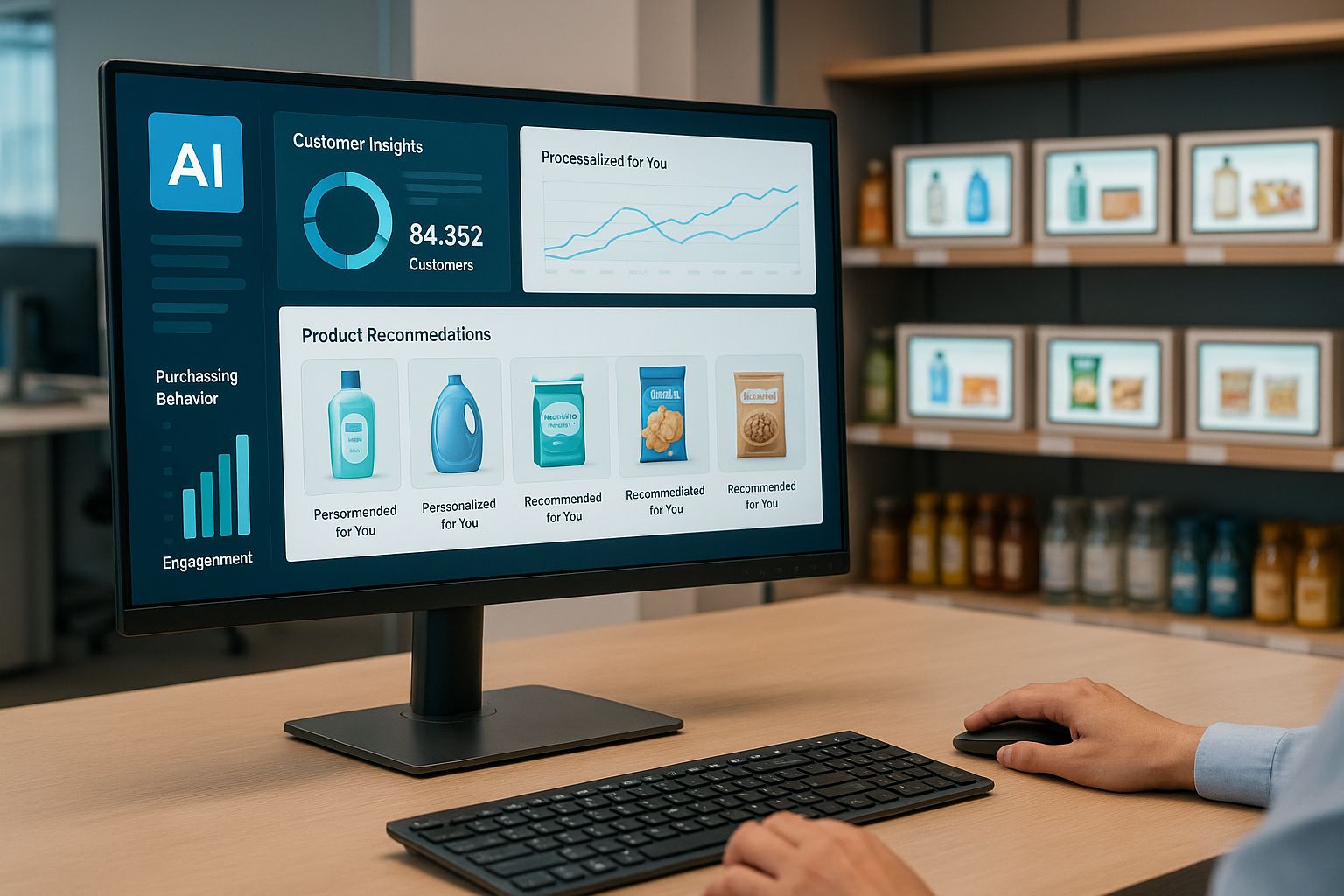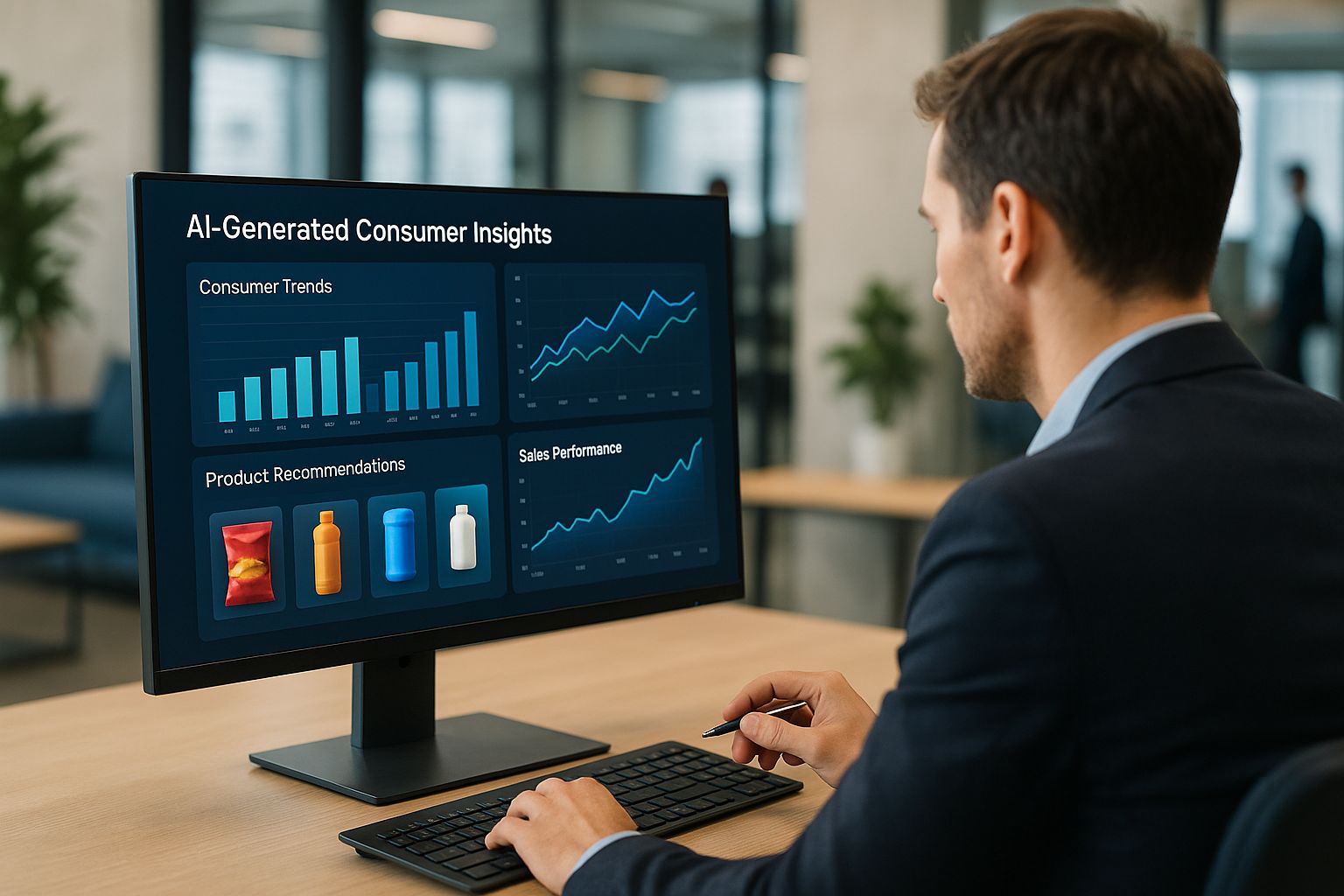
Artificial intelligence is transforming how consumer-goods brands personalize every touch point.
AI-powered personalization enables consumer-goods brands to use data and machine learning to tailor offers, messages, and experiences. By predicting consumer intent and adjusting marketing in real time, brands increase engagement, improve ROI, and strengthen loyalty — ensuring each customer receives the right message at the right moment.
• AI-driven personalization increases conversion rates by up to 20 percent¹
• 80 percent of consumers favor brands delivering tailoredexperiences²
• Predictive analytics in CPG reduces excess inventory by15 percent³
• Real-time AI optimization boosts ad ROI by 30 percent⁴
• Brands applying AI-based loyalty models double retentionrates⁵

AI-powered personalization uses algorithms and data modeling to identify what motivates consumers, then crafts marketing that feels personal and relevant. By analyzing browsing behavior, purchase patterns, and loyalty data, brands can predict what each shopper wants — and present the right offer or recommendation across web, app, and in-store touch points.
Pull Sentence: AI personalization transforms generic marketing into meaningful, data-driven engagement.
CPG brands use AI across multiple channels to deliver seamless, personalized experiences. Dynamic creative optimization adapts ad content automatically. Retail media platforms personalize product placements.Voice and visual search tools improve product discovery, and AI chat bots provide real-time support. Together, these technologies make brand interactions smoother, smarter, and more relevant to consumer intent.
Pull Sentence: Every personalized moment powered by AI strengthens the bond between brand and buyer.
AI personalization drives measurable growth. It increases marketing efficiency, improves conversion rates, and reduces wasted ad spend.Machine learning identifies top-performing creative, predicts demand, and informs pricing strategies. By automating insights and optimization, CPG companies align their marketing investments directly with performance outcomes.
Pull Sentence: When personalization becomes predictive, growth becomes consistent.
AI personalization introduces new challenges: maintaining data privacy, ensuring ethical AI use, and avoiding over-targeting. Consumers value transparency and control over their data. Responsible brands set clear consent policies and guardrails to prevent misuse. Done right, personalization builds trust — done poorly, it risks damaging reputation and relationships.
Pull Sentence: Trust is the foundation of every successful personalization strategy.
To adopt AI personalization effectively:
1. Audit your data sources to ensure quality and compliance.
2. Start small with pilot campaigns before scaling.
3. Integrate data systems to unify insights across departments.
4. Measure and refine performance continuously using A/B testing.
Pull Sentence: AI personalization isn’t a trend — it’s a transformation that grows smarter with every interaction.
AI-powered personalization helps consumer-goods brands move beyond generic marketing to meaningful engagement. As technology evolves, human insight remains vital. The future of CPG success lies in combining empathy with automation — creating connections that feel personal, authentic, and lasting.
Ready to strengthen your brand’s customer connection? Use the contact form below to start a conversation with our team about personalized marketing solutions for your CPG brand.
• How to Win with Omnichannel Marketing
• Digital Marketing That Actually Gets Clicks
• Automated Ads or Old School? What Works for CPG Brands
1. McKinsey & Company — The Value of Getting Personalization Right (2024)
2. Salesforce Research — State of the Connected Customer (2024)
3. Deloitte Insights — AI in Consumer Products (2025)
4. Gartner — Marketing Optimization with AI Tools (2025)
5. Accenture Strategy — Customer Loyalty in the Age of AI (2024)